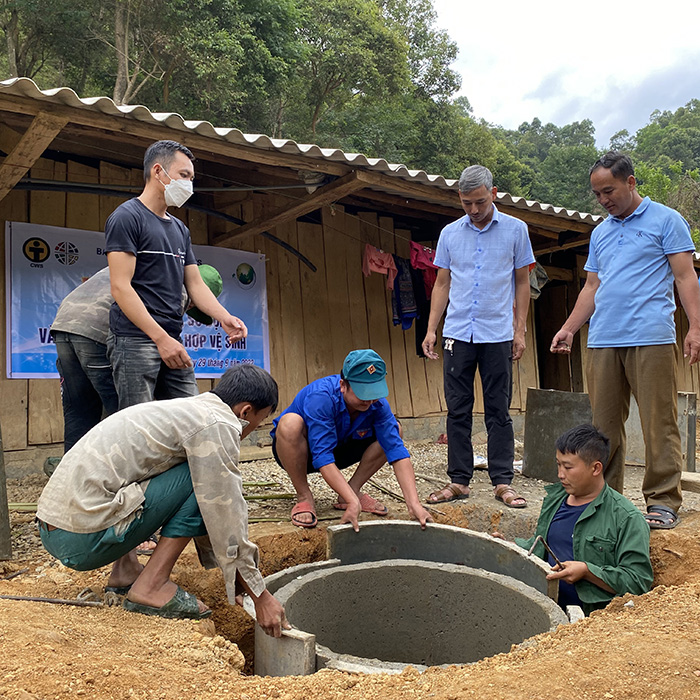
Participants in a hands-on, technical training in Hua Chit learn how to build a sanitary latrine.
In the village of Hua Chit, high in the mountains of Ta Hua commune in Vietnam, 46 families live without access to sanitary latrines. The small village is home to 211 people, all of whom are part of the H’Mong ethnic minority group. Due to the limited access of sanitation facilities, many families would relieve themselves near the local stream or behind their homes, which posed health risks for the community.
“People in the village have had a long habit of defecating outside—near the stream or in the forest, on the upland field or behind the bushes near their house,” Mr. Khang A. Lau, Hua Chit’s general secretary, told us.
CWS hosted a Community-Led Total Sanitation event for local families to discuss the process of building sanitary latrines and health risks of open defecation. Participants were invited to join a technical hands-on training, where they learned how to make concrete rings for the foundation and use local materials, like bamboo and wooden planks, to reduce building costs.
“I didn’t think building sanitary latrines would be so simple and cheap,” said Mr. Lau. “It costs about 1.3 million VND [$60] for construction materials to make concrete rings and the roof. Thanks to the training, we will be able to build latrines ourselves without depending on outside workers. In addition, it is now convenient for villagers when they want to build a sanitary latrine.”
Since participating in the CWS-supported training, Hua Chit has 16 new latrines, and its community members have already set a goal for every family to have their own sanitary latrines by early next year.
We’re proud to walk alongside our neighbors in Hua Chit as they take steps towards healthier futures.
